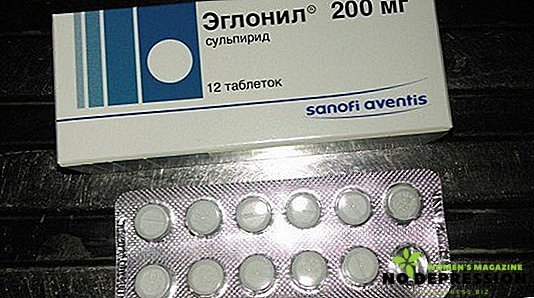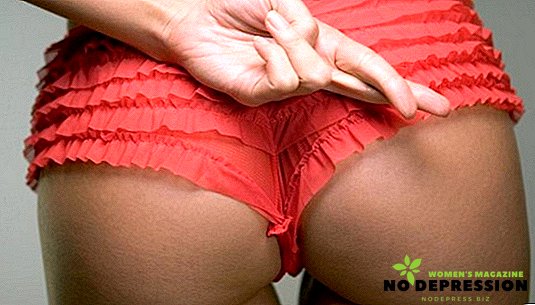Unfortunately, modern women know firsthand what is cystitis.
Cystitis is characterized by inflammatory processes that affect the bladder. This disease affects not only the representatives of the beautiful half of humanity, but also men. However, among women, the disease is diagnosed much more often (80% of cases, women are the patients).

Cystitis in women: types and symptoms
Cystitis is a serious disease that rules out any attempt at self-treatment. Evaluate symptoms and prescribe treatment can only the attending physician. You should know the main symptoms for which you should immediately contact a medical institution.
Symptoms of cystitis:
- Constant abdominal pain;
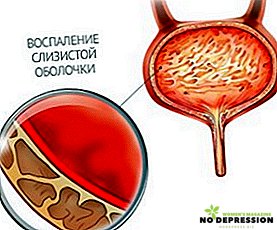
- Discomfort during urination, it may be a burning sensation or other pain;
- After urination, there may be a feeling of incomplete emptying;
- Deceptive urination to urinate;
- Urine becomes dull and unpleasant;
- At a certain stage of the inflammatory process, body temperature can rise to 38 degrees;
- Urine may acquire a greenish color, the formation of pus;
- You may experience general weakness, dizziness, nausea, vomiting.
How is cystitis classified
Depending on the stage of development of the disease, the reasons for which it is caused, cystitis classifies into several subspecies:
Acute. In most cases, this type of disease becomes chronic. This type of cystitis can be determined by the color of the urine (it will definitely be with a bloody impurity), as well as by the overall clearly marked clinical picture.
Chronic cystitis goes through several stages.
- Latent, or the easiest, at which the weak aggravation can be observed;
- Persistent, more serious stage. The function of the bladder is not impaired, however, the first symptoms of the disease begin to appear stronger;
- The interstitial stage is the most difficult and dangerous. To cure diseases at this stage is difficult.
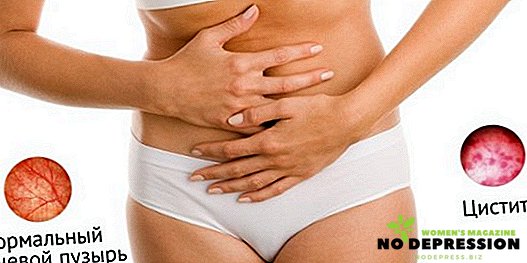
Hemorrhagic. The cause of this disease are most often viruses and fungi. The reasons can also be:
- Improper hygiene;
Contact with a foreign body; - Weak immunity.
Interstitial This type of disease affects most often young girls. This happens as a result of the lack of glycosaminoglycans in the young body. To determine the presence of interstitial cystitis can be a sharp pain in the lower abdomen, as well as false urge to urinate, especially at night.
 Ray. This disease can trap women who have been exposed to radiation in their lives. In order to get rid of this disease often resort to the help of surgeons.
Ray. This disease can trap women who have been exposed to radiation in their lives. In order to get rid of this disease often resort to the help of surgeons.
Postcoital. Symptoms of this disease can occur only after sexual contact. If sexual activity is reduced, then the symptoms of cystitis are reduced.
Cervical, characterized by the course of a disease that affects the bladder neck. Cervical cystitis can be characterized by false urination, sharp pains in the lower abdomen, as well as incontinence.
Treatment of cystitis in women: drugs
Treatment of the urinary system requires a special approach and time. Whatever the stage or form of the disease, in any case, only the attending urologist can provide basic assistance. He will prescribe a list of drugs, indicate how long and correctly to take them. Self-treatment is strictly prohibited.
Below is a list of drugs prescribed by the doctor for the treatment of cystitis.
Antibiotics
Cystitis requires antibacterial treatment in cases where the disease has become acute or chronic. Before the doctor prescribes the necessary antibiotics, a blood and urine test should be taken to identify the causative agent. Among the bulk of antibiotics, the most popular in the treatment of cystitis are the following:
- Monural A powerful remedy in the treatment of cystitis, even without a urine test;
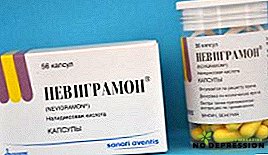
- Nitroxoline. It is used not only for cystitis, but also for urethritis, epididymitis;
- Palin;
- Unplayed. It is used in the treatment of diseases of the genitourinary system;
- Rulid He is prescribed by the attending physician not only for cystitis, but also for urogenital infections;
- Furadonin. Most often prescribed for prophylactic purposes.
Phytopreparations
They are prescribed in simple cases when the course of the disease is not accompanied by high temperature:
- Cyston. Based on herbal extracts. It has a strong anti-inflammatory effect;
- Monurel. A sort of natural antibiotic based on cranberries. It has a diuretic antibacterial property;
- Lingonberry leaves. Excellent for combating inflammation of the genitourinary system;
- Canephron. Let out in the form of solution or a dragee. The use of the drug helps to get rid of pain and cutting during urination;
- Phytolysin paste. The extract, which is based on 9 varieties of herbs. Possesses powerful antibacterial and diuretic properties.
In addition to antibiotics and medicinal herbs, antispasmodics are also prescribed in the fight against cystitis. These drugs help fight the pain that accompanies the disease. The most famous of them are "No-shpa", "Drotaverin".
Acute cystitis in women: treatment methods
Acute cystitis - the disease is perhaps the most common. During the acute form, women may experience the following symptoms:
- Lower abdominal pain;
- Increased urination to urinate, accompanied by pain;
- Weakness or chills;
- Frequent cases of incontinence;
- Increased body temperature;
- Bloody impurities in the urine.
To cure the acute form of cystitis, you need to promptly consult a doctor. If you follow all the instructions, you can get rid of pain symptoms in less than a week.

Most often, with this disease, the doctor prescribes antibiotics. After studying the tests, he indicates the name of the drug, the dosage and duration of treatment. In addition to antibiotics, antispasmodics are often prescribed to relieve pain symptoms.
During the course of the disease, experts advise drinking 2-3 liters of liquid per day.
This may be a compote of dried fruit or fruit drink. During the illness, the body is weakened, so the appointment of vitamins is not superfluous.
Treatment of hemorrhagic cystitis in women
Hemorrhagic cystitis is considered a serious illness. Inflammation causes damage to the bladder mucosa. At the same time in the urine can observe the appearance of blood clots. Usually, this type of cystitis may appear after the infection.
 As for the treatment of hemorrhagic forms, it can only take place permanently. This is due to the fact that in this case there is a risk of blockage of the canal that responds to urination.
As for the treatment of hemorrhagic forms, it can only take place permanently. This is due to the fact that in this case there is a risk of blockage of the canal that responds to urination.
Doctors prescribe antibiotics to the patient. Most often this is Monural, or Ciprofloxacin. To remove strong pain, it is necessary to take antispasmodics. Often the attending physician prescribes medicines to the patient, based on plant extracts - Canephron, Fitolysin.
Hemorrhagic cystitis is also unpleasant because it can lead to various kinds of complications. Blockage of the urinary tract can lead to stagnation of urine in the body. Stasis, in turn, entails an increase in the bladder and all sorts of damage to it.
How to treat chronic cystitis in women
An acute form of cystitis with its improper and late treatment can develop into a chronic form of the disease. Symptomatology is identical to the acute form. In the chronic form, exacerbations can occur several times a year. They may be caused by hypothermia or other causes.
 The majority of specialists offer their patients for treatment, only natural medicines, among them Uroprofit. This is a complex that helps to normalize urination.
The majority of specialists offer their patients for treatment, only natural medicines, among them Uroprofit. This is a complex that helps to normalize urination.
Treatment of the chronic form should be complex. On the one hand, pathogens need to be overcome. To do this, prescribe antibiotics - Gatifloxacin, Levofloxacin, Ofloxacin. Usually the course of treatment reaches 10 days.
On the other hand, urinary tract needs to be cleaned of bacteria. To do this, drink as much liquid as possible, compotes and fruit drinks.
Folk medicines for the treatment of female cystitis
Treatment of cystitis can take place with the help of traditional medicine. However, here consultation with your doctor is not canceled. Folk remedies for the treatment of cystitis:
- Millet. It is necessary to prepare water by mixing it with millet, about half a glass. Insist the resulting mixture, then drink for a week before meals;
- Clay. You can make a kind of compress from clay by applying it for a couple of hours in the area below the abdomen;
- Rowan bark.
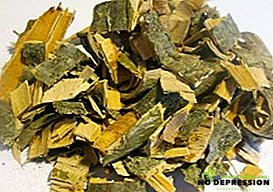
To prepare the broth from the bark of mountain ash will need to mix:
- Rowan Bark (100 g);
- Litere of water.
All this is boiled for about 10 minutes, and taken orally instead of tea.
- Milk. In this case, milk is used for taking a sitz bath. For this you need about 3 liters of milk. It must be heated to an acceptable temperature that the patient can tolerate. Having covered with a blanket, you should constantly add milk until it ends;
- Herbal infusion.
In order to prepare herbal infusion, you will need:
- 1 table spoon of any collection of herbs - sage, violets, fireweed, spike grass, dandelion leaves, mint or chamomile;
- Water (o, 5 l).
Boil the grass and take a quarter cup inside 8 times a day.
What should be the power of cystitis
When bladder disease is necessary to take a certain dose of vitamins, as well as a special diet.
Diet with acute form:
- Vegetables fruits;
- Kashi (oatmeal, buckwheat, rice);
- Drink. Water only non-carbonated, compotes and drinks carrot, lingonberry, cranberry, apple.
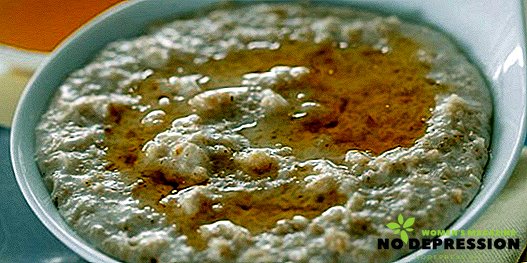
Diet with chronic form:
- Vegetables, fruits and berries in the raw;
- Cottage cheese, hard cheese;
- Vegetable soups;
- A small amount of meat, only lean;

- Kashi, preferably buckwheat.
You can not drink with cystitis:
- Strong tea;
- Carbonated drinks;
- Coffee;
- Citrus juice;
- Alcoholic beverages.
What are the goals of such a diet?
- Reducing the number of microbes in the body;
- Simplifies the process of removing urine from the body;
- Nourishes the body with vitamins;
- Makes drug therapy more effective;
- Reduced intoxication.

Possible complications
Cystitis is a rather dangerous disease that can bring unpleasant complications to a woman’s health. With his wrong or late treatment, the disease can give complications in the form of:
- Pyelonephritis. Infectious inflammatory kidney disease;

- Cystic ureteral reflux. This is a process characterized by inflammatory damage to the urinary organs;
- Epiema It is a kind of purulent formation, which certainly requires surgical intervention. Epiema can lead to the formation of cysts;
- Paracystitis Complications after cystitis can lead to dysfunction of fiber, which provides nutrition and mobility of the bladder;
- Cystalgia It is characterized by pain when urinating in the absence of disorders in the urinary system;
- Leukoplakia. This is a pathology in which the functions of the kidneys and bladder are disturbed, which is a consequence of the neglected stage of cystitis.
Causes of cystitis in women and preventive measures
In order not to waste time on treating an unpleasant and frequent illness, you need to know the main causes of its occurrence:
- Inflammatory processes of the genital organs in women, as well as all sorts of infections and bacteria;
- Bladder stones;
- Often, cystitis appears in pregnant women. This occurs due to changes in the microflora in the vagina;

- The use of radiation therapy;
- During surgery, mucosal damage may occur, which can lead to the development of cystitis in women;
- This disease may be due to menopause;
- Promiscuous sex;
- Poor hygiene;
- Reduced immunity;
- Infrequent urination.
Prevention measures:
- Follow the rules of hygiene;
- Before intercourse, you should conduct a washing procedure. This applies to both partners;

- Clothing according to weather conditions;
- Perhaps, it is necessary to refuse tampons in favor of the pads, because they can squeeze the urinary channels;
- Correct and timely treatment of colds;
- Avoid hypothermia;
- Optimal fluid intake.
Even if the above precautions could not protect against the occurrence of such a disease as cystitis, you should immediately consult a specialist. Self-healing is not only useless, but also dangerous.
Additional information about the treatment of cystitis can be found in the following video.













